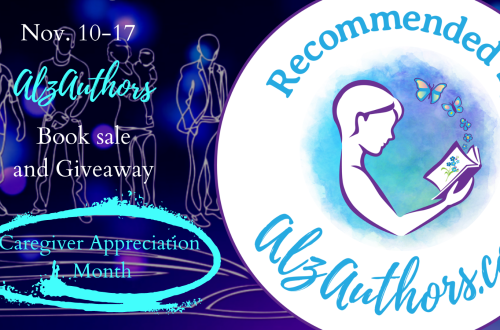Who are you? Where am I?
 It was the weekend of our family reunion and almost everyone was gathered together at my parent’s condo to celebrate a milestone. Our patriarch, my dad, was turning 90. When the front doorbell rang, Mom opened the door, took one look at her oldest granddaughter and asked in a perplexed tone of voice, “Who are you?” After a moment of silence, we all laughed a little uncomfortably, but brushed it off, rationalizing the comment as a manifestation of Mom’s stress in caring for Dad, who had been diagnosed with Parkinson’s disease. It was not mentioned again.
It was the weekend of our family reunion and almost everyone was gathered together at my parent’s condo to celebrate a milestone. Our patriarch, my dad, was turning 90. When the front doorbell rang, Mom opened the door, took one look at her oldest granddaughter and asked in a perplexed tone of voice, “Who are you?” After a moment of silence, we all laughed a little uncomfortably, but brushed it off, rationalizing the comment as a manifestation of Mom’s stress in caring for Dad, who had been diagnosed with Parkinson’s disease. It was not mentioned again.
Our family continued to somehow normalize or overlook the ever-increasing signs that something was not quite right with Mom’s behavior. Another two years passed before she finally agreed to be evaluated by her health care provider, around the same time Dad was diagnosed with Parkinson’s-related dementia. Although by this time our family wasn’t completely surprised by Mom’s Alzheimer’s diagnosis, we were alarmed to hear she was already considered to be in the “moderate” stage of the disease. I later learned this scenario is typical.
Studies tell us that the delay in diagnosis can be attributed to the family’s own denial in not wanting to face the fact that something is wrong. In retrospect, this could be applied to our family, although in many ways, we were simply clueless in the beginning. Sometimes a fear of diagnosis can result in reluctance on the part of the affected person to agree to an evaluation, particularly if it involves an adult child prodding an intractable parent. Healthcare costs may also be a factor in avoiding an assessment by a qualified health care provider (HCP). The oft-perceived stigma associated with a potential diagnosis of dementia/Alzheimer’s can be a barrier to evaluation for the entire family.
National Memory Screening Week
In an effort to promote the importance of early detection of memory problems, the Alzheimer’s Foundation of America (AFA) has launched the first annual National Memory Screening week, scheduled for November 1-7.
The screenings will be free and confidential, and if deemed necessary, refer people on to appropriate follow-up services. One of the goals of the screening is to work toward eliminating the stigma and fears associated with dementia. The AFA also hopes to alleviate fears for the people who do participate in the memory screening, but do not show a concerning memory problem.
For more information about the screening (date, time) and a list of participating sites, visit: www.nationalmemoryscreening.org.
Who should consider having a memory screening?
- Anyone concerned about memory loss or experiencing any of the warning signs of dementia.
- Anyone who feels they’re at risk because of a family history of Alzheimer’s disease or another type of dementia.
- Anyone who wants a baseline evaluation of their memory for future comparisons, even though they don’t have a current concern.
If you or a loved one answer “yes” to any of the following questions provided by the AFA, it may be prudent to participate in the free memory screening.
- Are you becoming more forgetful?
- Do you have any trouble concentrating?
- Do you have difficulty when performing familiar tasks?
- Do you have trouble recalling names or words during conversation?
- Do you sometimes forget where you’re going or where you are?
- Have friends or family told you that you’re saying the same thing over and over or repeating questions?
- Do you often misplace things?
- Have you become lost when driving to a familiar place or walking in your neighborhood?
- Have your family or friends told you they’ve noticed changes in your behavior, moods, personality, or desire to engage socially?
For more info:
http://nationalmemoryscreening.org/screening-sites-info.php
Talking about memory issues and Alzheimer’s can be difficult. One way to open a discussion is through reading. Here are five titles, including my own, that can help start a conversation about memory concerns:
Alzheimer’s Daughter, Jean Lee
On Pluto: Inside the Mind of Alzheimer’s, Greg O’Brien
What Flowers Remember, Shannon Wiersbitzky
Blue Hydrangeas, an Alzheimer’s love story, Marianne Sciucco
Somebody Stole My Iron: A Family Memoir of Dementia, Vicki Tapia



